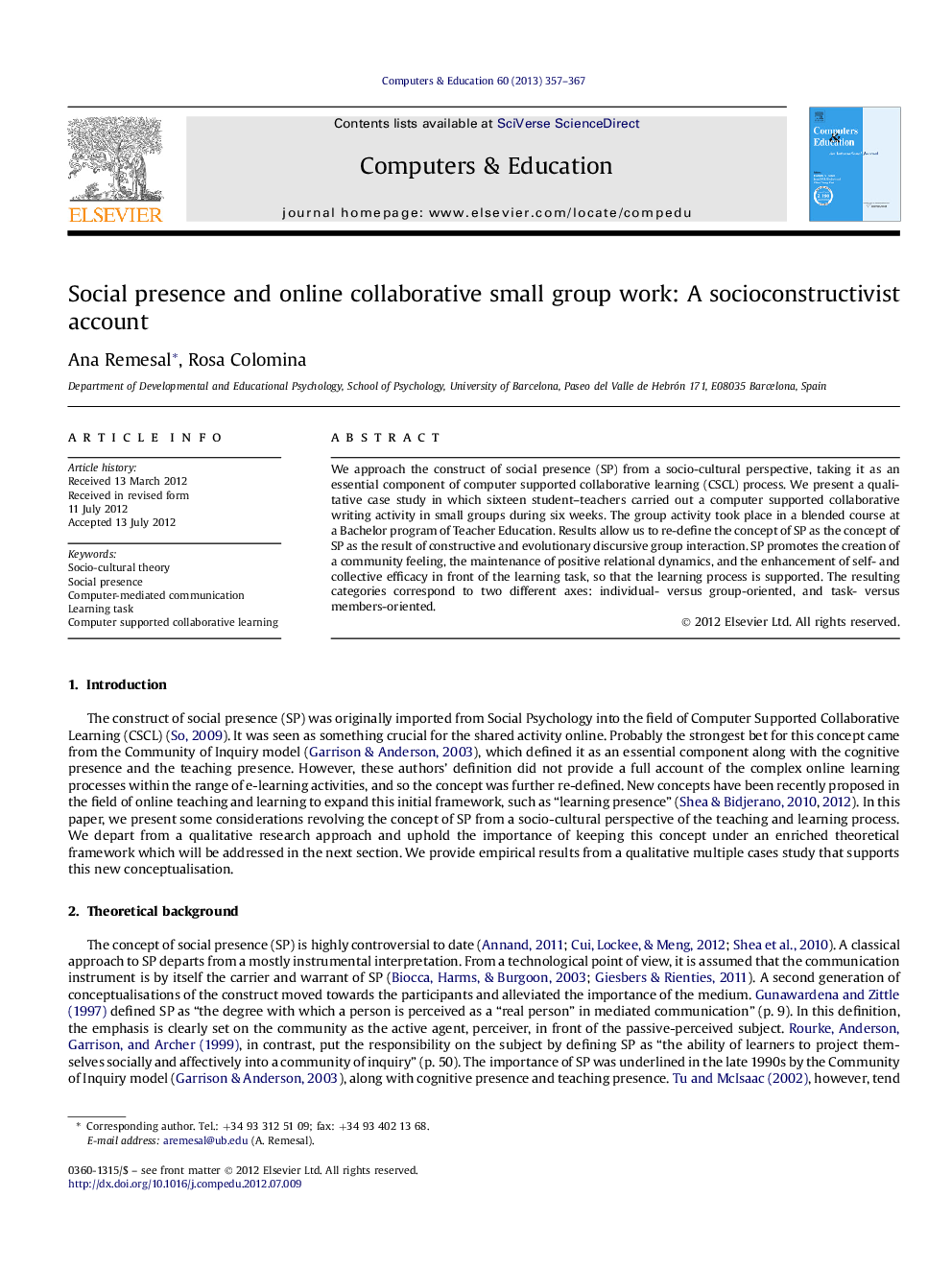| Article ID | Journal | Published Year | Pages | File Type |
|---|---|---|---|---|
| 348575 | Computers & Education | 2013 | 11 Pages |
We approach the construct of social presence (SP) from a socio-cultural perspective, taking it as an essential component of computer supported collaborative learning (CSCL) process. We present a qualitative case study in which sixteen student–teachers carried out a computer supported collaborative writing activity in small groups during six weeks. The group activity took place in a blended course at a Bachelor program of Teacher Education. Results allow us to re-define the concept of SP as the concept of SP as the result of constructive and evolutionary discursive group interaction. SP promotes the creation of a community feeling, the maintenance of positive relational dynamics, and the enhancement of self- and collective efficacy in front of the learning task, so that the learning process is supported. The resulting categories correspond to two different axes: individual- versus group-oriented, and task- versus members-oriented.
► We revisit the concept of social presence from a socio-cultural perspective. ► Social presence is analysed over time in the actual interaction during the learning process. ► The new definition defines four dimensions on two axes: task-centred or people-centred. ► Profiles of social presence-linked behaviour are defined in correspondence with these dimensions. ► Results from four small groups in CSCL context illustrate the concept.
